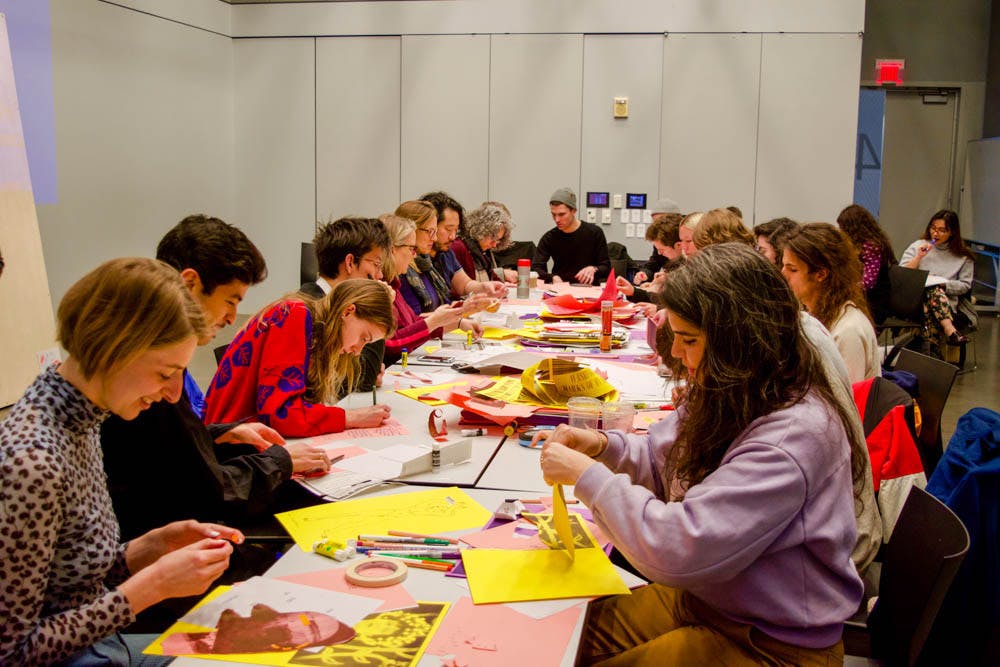Interrupt V, a festival hosted by the Literary Arts Department Friday and Saturday, featured artists who commented on and examined the intersections of literary theory and media.
The festival was organized by John Cayley, professor of literary arts, and Theadora Walsh GS. Through workshops, lectures and performances by various artists, the festival sought to “interrupt” linguistic conventions, whether in human speech or when speaking about the distinction between dream and reality.
On Friday, students and faculty gathered in the Martinos Auditorium as New Order’s “Age of Consent” played over the speakers. At the front of the auditorium, a screen capture video recording showed the virtual interactions of two writers playfully typing on a word processing document, unleashing their musings and qualms related to language, capitalism and even the video itself. Audience members fell silent as they watched the writers type, with occassional bouts of laughter as the text grew humorous.
After the short film, Jackie Wang, a multidisciplinary artist and PhD candidate in African and African American studies and history at Harvard, gave a lecture titled “Abolitionist Poetics and the Politics of Dreaming.” In her presentation, Wang dissected the relationship between dreaming and imprisonment.
Wang elaborated on the relationship between time and language as well as their impact on individuals’ lives. She spoke of how language, specifically rhythm and tempo, “is set by living in this debt economy” and meditated on “strategies of how to resist carceral time through the creation of a rhythm of revolt.” Analyzing the weaponization of time as social control, Wang focused on temporal punishment’s deep ability to cause pain in those who have been incarcerated.
“It is a total attack on the subjectivity and the psyche of the prisoner. … Temporal punishment is not legible in our current framework of understanding harm and pain,” Wang said. Throughout the lecture, she continued to detail how poetry can be linked to dreaming, a method of escape from captivity.
Wang’s elaboration on the relationship of language and imprisonment reflected the festival’s focus on the tension between the literary and the physical world. As media “becomes increasingly material … (and) ever more woven into sensation,” the festival considers digital writing to be “an impression on the body.” According to the festival’s website, Interrupt V’s “approach to media and authorship casts light on the myriad ways data encrypts the body in late capitalism.”
Other artists, including Sawako Nakayasu, Abraham Avnisan, Claire Donato and many others, offered discussions, interactive workshops and performances related to subjects ranging from commentary on the Digital Age’s effect on processing grief to the intersections of text and environment.
Many audience members were swayed by Interrupt V’s reimagination of common modes of thinking. Miranda Luiz ’22 found the festival, specifically Wang’s lecture, insightful. “Language is something that we should think more critically about … (because it) can have different repercussions with different material bases,” she said.





